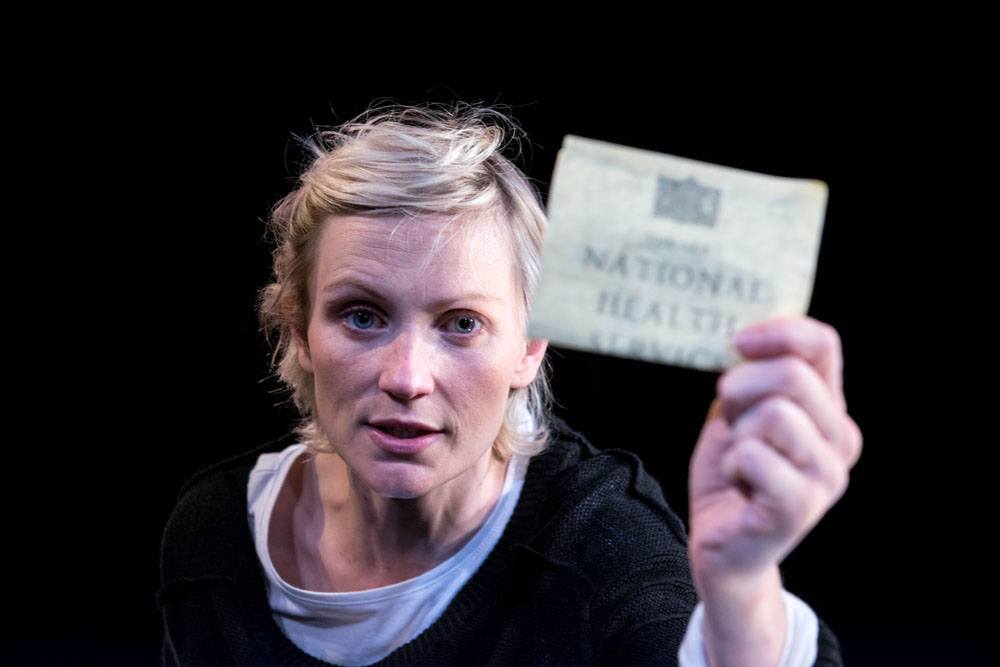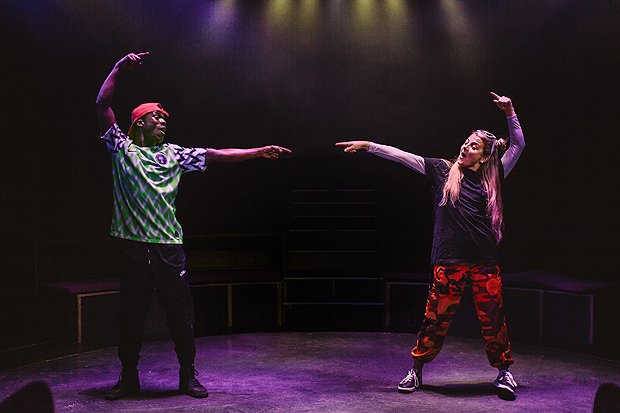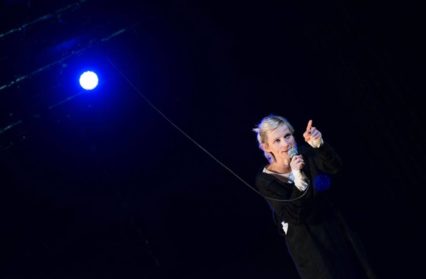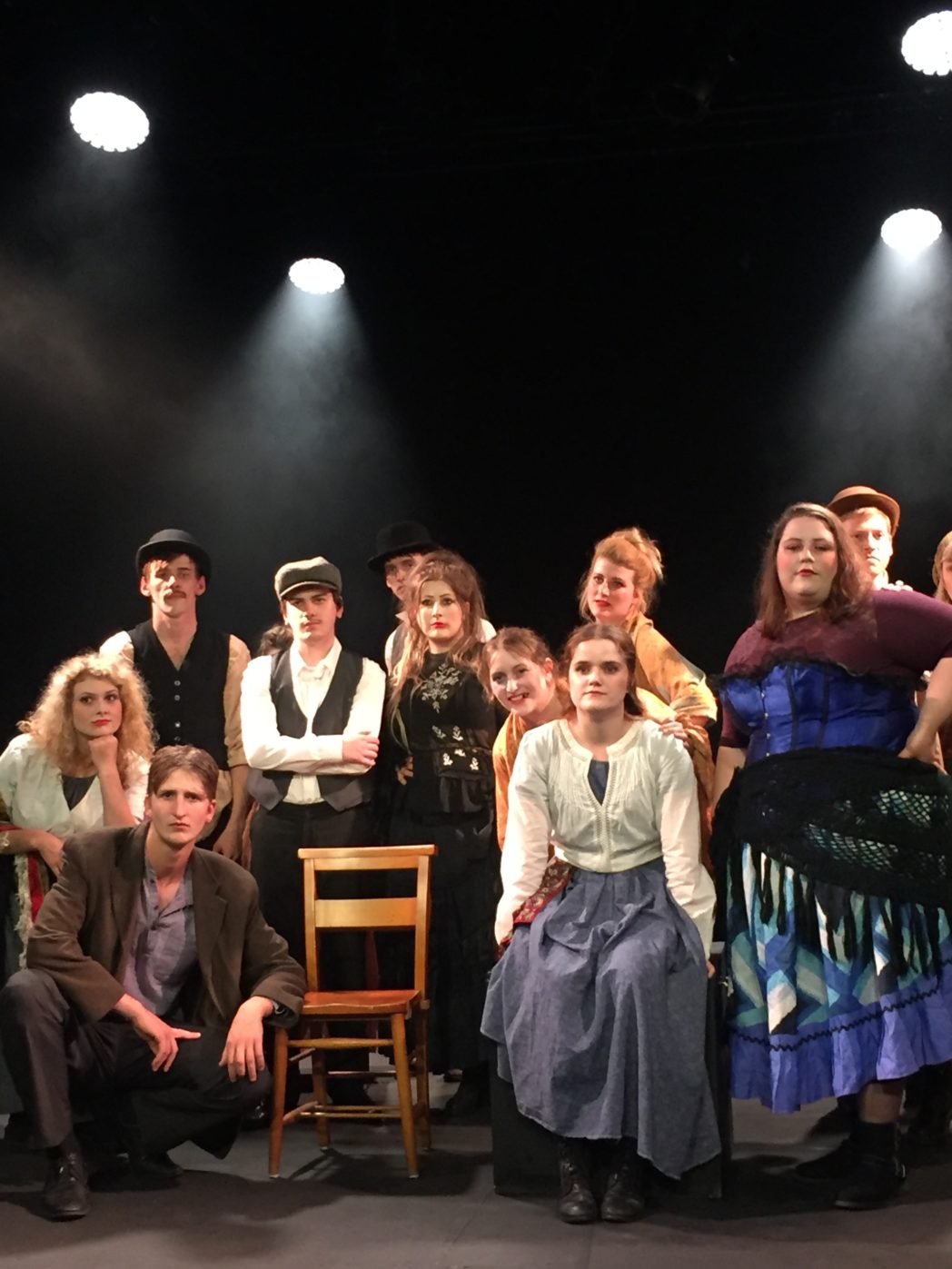Grace Patrick is in Edinburgh checking out a selection of Welsh productions at #EdFringe2019. In this second roundup of reviews, Grace looks at shows exploring the history of the NHS, a children’s detective agency, and Jack the Ripper.

For All I Care (National Theatre Wales); Summerhall
In the hands of a lesser writer, For All I Care could easily have become a didactic play. Alan Harris is better than that. Handling the interplay between the NHS, the individual, history and society, there are plenty of targets for an easy “Teaching Moment”. What he does instead is, inarguably, more challenging. By encouraging his audience to examine a situation (which, admittedly, sometimes nudges the edge of believability), Harris offers subtle guidance for figuring out who we can bring ourselves to blame, and then to question what the next steps should be.
Harris ploughs his usual furrow of the south Walian working class experience, bringing voices to those rarely given voices on stage. Clara is a likeable woman, made vulnerable by her mental health issues, her addictions, and her class. Nyrie is the mental health nurse who provides the propulsion of a story that has many of the hallmarks of a Harris script – passion, compassion, and a little touch of magic realism.
What underpins For All I Care is the question of the right to be cared for, and the more slippery right to care. It is intuitive that everybody possesses the right to be cared for, and on the other side of that coin is the unspoken presumption that everyone has the right or responsibility to do what they can to provide that care. However, we also live in a country where the centralised resource for that care, the NHS, is under extreme financial and social pressure. As it’s put in the play: “Is this the NHS that we want?” “Well, it’s the one we’ve got.”
Harris is great at creating characters of real depth; none of these are really bad people, even if the things they do cause harm. They are being pulled and pushed by innumerable external forces, along with the weight of the stifling society with barely a window open, let alone a door. There’s a growing sense that it’s all but impossible to do good; it’s all but impossible to do anything.
Alone on her shiny stage, all of this falls to the wonderful Hannah Daniel – this complex, winding story is a one woman show (and formed part of National Theatre Wales’s #NHS70 celebrations of July 2018). Daniel weaves from character to character without missing a beat, swinging from Clara’s vulnerability to Nyri’s gentle determination with barely room to breath. All of this is overseen by the steady thoughtful direction of Jac Ifan Moore. Given the short running time of the play, it could perhaps benefit from a narrower focus. While the picture it paints of the interlocking lives in Ebbw Vale is alluring and relevant for its insular air, it is drawn a bit too thin at times, as though prioritising scope over depth. However, Harris was commissioned to write on a subject that could never be fully explored. He does an excellent job.
For more information on this show at the Fringe click HERE

Dexter and the Winter’s Detective Agency (Paines Plough & Theatr Clwyd); Summerhall
Between the brightly coloured lights and the loud sound effects, Dexter and Winter’s Detective Agency gets pretty close to feeling simultaneously like a stage show and a cartoon. After Dexter’s mum is accused of taking part in an enormous jewellery robbery, Dexter and Winter take it upon themselves to prove her innocent, meeting a cast of strange and unpredictable characters along the way.
The air of being straight from CBBC is accentuated by the show’s unrelenting pace. Even though there are only three actors on stage at any time, Charlotte Bate seems to have certainly drawn the exhausting straw, playing a seemingly never ending hoard of supporting characters, rarely staying as one for more than a couple of minutes before running offstage for yet another rapid turnaround. Her accents and character work are fun and impressive, keeping her parade of characters fully distinct from one another.
Although the whole thing revels in its artifice, there are a few moments in which over-exaggerated acting make the suspension of disbelief a little challenging (perhaps less so for the children in the audience, however).
The Fringe is home to plenty of gorgeous children’s shows this year which are more stripped back and less reliant on stage tech, so it’s actually a pleasant variation to see it used more extensively. Dexter and Winter is more or less reliant on its lights and sounds, which play just as active a role in the world-building as the actors do. It is a fun and interactive show, perfect for younger children and families. Although lightly contrived at moments, it still manages to not talk down to its audience, allowing them to have fun and get involved at their own pace.
Find out more about this show at the Fringe HERE
Shreds: The Jack the Ripper Musical (Unknown Theatre Company); Venue 13
Perhaps it’s just bad timing, in a year when Hallie Rubenhold has had so much online abuse for her focus on the lives of Jack the Ripper’s victims, upending much of the erroneous history attached to them and giving them voices as women, Shreds, a musical exploring the world of Jack the Ripper and his victims, Shreds often misses its mark. When performing new or little known musicals like this one, large casts and complicated costumes often bring with them unnecessary risk. The work itself can get lost in the detail surrounding it, leaving it feeling overwhelmed and underdeveloped. In the case of Shreds, there could be much to gain from some extensive stripping back. The programme tells us that this version is less than half the length of the original, but the piece still seems to just have too much going on. A busy stage and varyingly accurate Victorian costumes may hinder more than they help.
Visually, not all of the decisions make sense. While the temptation to present Victorian sex workers as a contemporary audience would expect them to look is, of course, real, the sight of them portrayed as a collection of women with dishevelled clothing and smeared makeup quickly becomes reductive. If the aim of this show is to humanise Jack the Ripper’s victims, one place to start might be questioning why the protagonist, also a sex worker, has to be so distinct from her colleagues, who appear more like an automatic deference to a trope than a thought through portrayal.
Frustratingly, the much more nuanced characterisation of the protagonist proves that it can be done for the other characters. But it just isn’t. This clash between lead and ensemble characters makes it hard to effectively pin down the show’s aims, which seem somewhat disparate.
In places, the singing, influenced by a combination of Sondheim and London Road, could benefit from some changes in key; there are a fair few moments which seem to unnecessarily push the cast too far out of their vocal comfort zone without much to show for it. Apart from these stretches, the cast is confident and enthusiastic, working together effectively and smoothly. While Shreds isn’t quite there yet, in the future it could develop into an exciting and socially relevant piece of work. Perhaps they might benefit from passing around Rubenhold’s book.
For more on this show at the Fringe clock HERE













